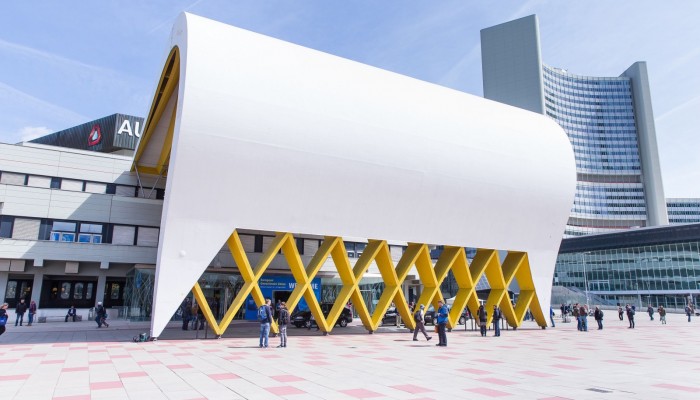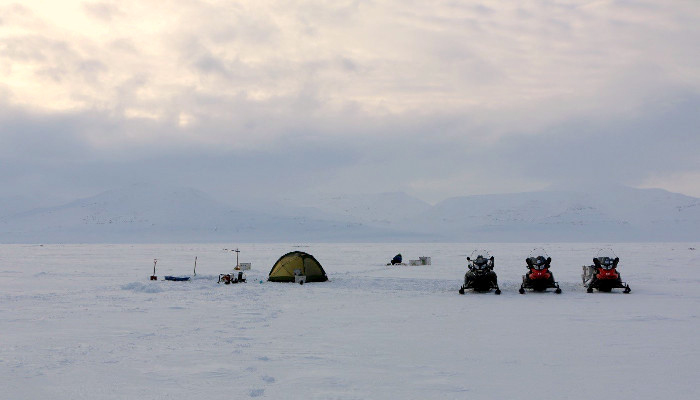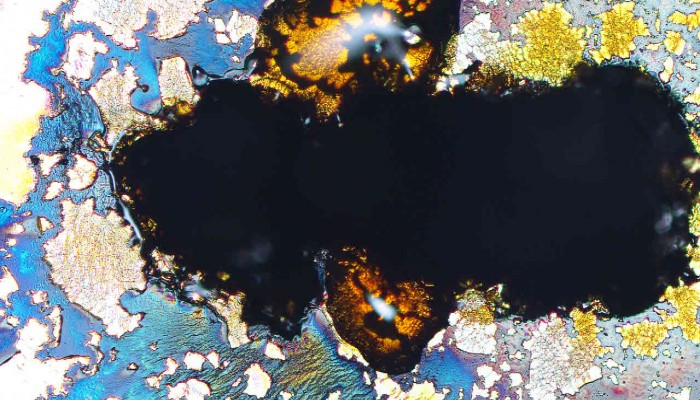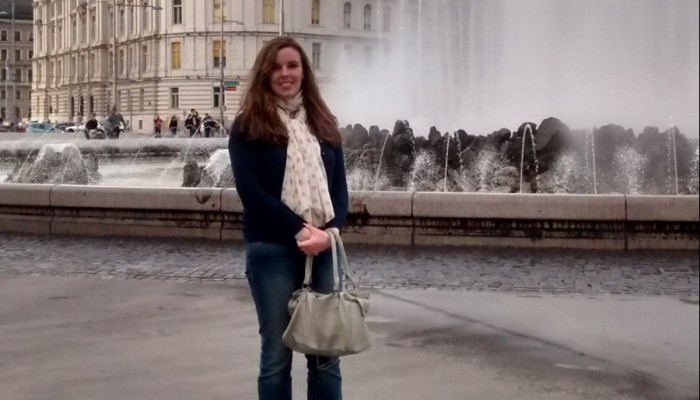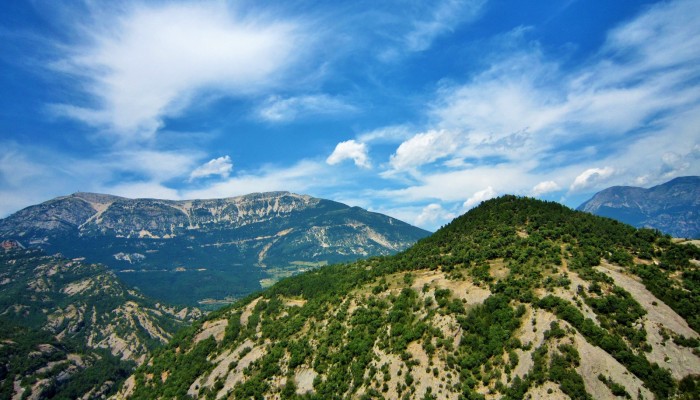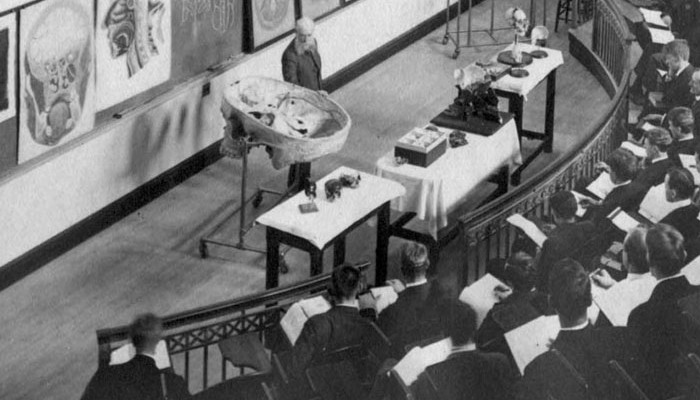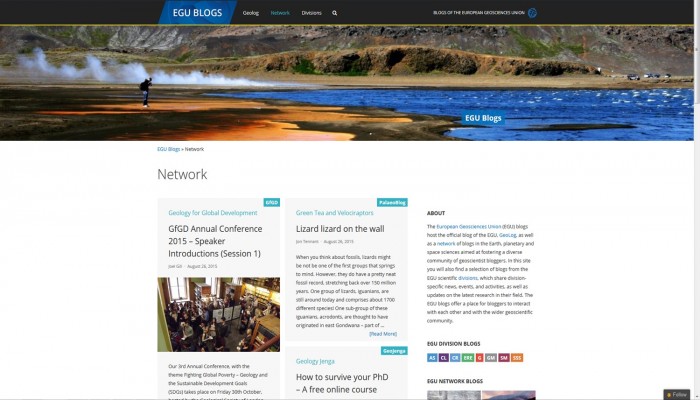Convening a session at a conference can seem daunting, especially if you are an early career research and a first-time convener. That’s why we’ve put together this two part series to outline the main steps of the process, with more detailed instructions to be published on the 2016 EGU General Assembly in due course. Remember, the call for sessions is open until 18 September 2015! This post picks u ...[Read More]
If you didn't find what you was looking for try searching again.
Cryospheric Sciences
Camping on the Svalbard coast
In early April 2015, a small team of 2 Belgian and 2 French researchers went to Svalbard. The goal? Testing new methods to measure sea-ice thickness and ice algal biomass, but also measuring greenhouse gases in the sea ice in relation with the ‘STeP’ (Storfjorden Polynya multidisciplinary study) campaign. With funding from the French Polar Institute (IPEV) and IPSL and logistical arrangements by t ...[Read More]
Energy, Resources and the Environment
How to assess geo-exchange potential for shallow geothermal energy at regional scale?
Words on Wednesday aims at promoting interesting/fun/exciting publications on topics related to Energy, Resources and the Environment. If you would like to be featured on WoW, please send us a link of the paper, or your own post, ERE.Matters@gmail.com **** By Eloisa Di Sipio Galgaro A., Di Sipio E., Teza G., Destro E., De Carli M., Chiesa S., Zarrella A., Emmi G., Manzella A. 2015. Empirical mod ...[Read More]
GeoLog
Imaggeo on Mondays: Electron cloud gone wrong
Deciphering the past history of rocks and what they might reveal about the Earth’s future is a key part of geology, and tools such as Ion Probes can be used by Earth Scientists to extract valuable information about a rock’s past. Today’s Imaggeo on Monday’s image was acquired by Sarah Glynn, a researcher at the University of the Witwatersrand, in South Africa, who was analysing a potential calcite ...[Read More]
GeoLog
Meet the EGU’s new Science Policy Fellow
I seem to have moved to Munich at the perfect time – glorious weather and three weeks before Oktoberfest! My name is Sarah and I’ve joined EGU as their Science Policy Fellow – a position created to implement science-policy related activities for EGU scientists. Before Munich, I studied a Masters in Chemistry at the University of York, which included my final year being spent in industry working in ...[Read More]
Green Tea and Velociraptors
The rise of open research data
This was originally posted at: http://exchanges.wiley.com/blog/2015/08/26/the-rise-of-open-research-data/ As a junior researcher in the UK, it has given me great pleasure over the last few years to see the dramatic development of open access publishing. Most major research funders in the UK now require public access to published research articles in one form or another, and many other research int ...[Read More]
Green Tea and Velociraptors
New open access journal to publish entire research cycles
Say hello to Research Ideas & Outcomes (RIO), a new open access journal, formally open for business today! The new journal represents a useful addition to traditional publishing, in that it will publish research from all stages of the research cycle, across a broad suite of disciplines, from humanities to science. Traditionally, journals accept articles that are the final product of the resear ...[Read More]
GeoLog
Imaggeo on Mondays: Mola de Lord
From the easterly Atlantic waters of the Bay of Biscay to the Catalan wild coast (Costa Brava) in the west, the Spanish Pyrenees stretch 430 km across the north of the country. At the foothills of the Catalan Pyrenees you’ll find the Pre-Pyrenees. Despite not reaching the soaring heights of the peaks of the Pyrenees, they nonetheless offer important insights into the geology of the range and stunn ...[Read More]
GeoLog
GeoEd: A Framework Too Far?
In this month’s edition of GeoEd, Sam Illingworth, former ECS PC representative and Lecturer of Science Communication at Manchester Metropolitan University, talks about a new framework introduced by the UK government to measure the quality of teaching at higher education institutions. Although Sam explores the issue from a UK perspective, there is no doubt cross over within the European realm. Als ...[Read More]
GeoLog
Join the EGU Blog Network!
After announcing earlier this week that we are sadly saying goodbye to the EGU network blog Between a Rock and Hard Place, the time has come to find a new blog to take their place. If you are an Earth, planetary or space researcher (a PhD student, an early career scientist, or a more established one) with a passion for communicating your work, we’d like to hear from you! We currently feature blogs ...[Read More]

